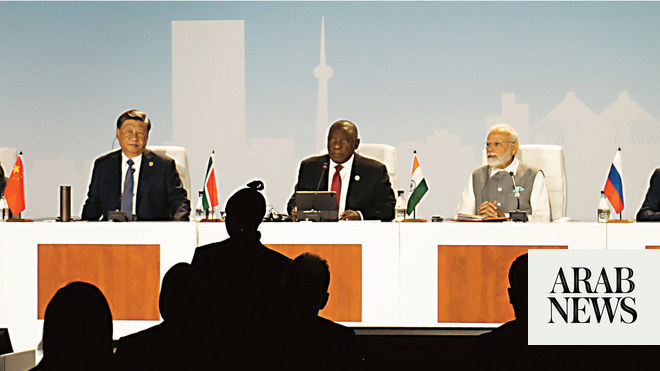
Three lengths into the final of men’s 200m butterfly final, Léon Marchand finally seemed to have finally reached the outer limits of his extraordinary talent. He was racing against the Hungarian world record holder and Olympic champion from Tokyo Kristof Milak, and he was losing. At that, distance swimming races happen slowly, and then all of a sudden. There’s hope all the way until the point when it’s irresistibly obvious that there’s not, and the 17,000 clamouring French fans in La Défense Arena were just beginning to fall quiet as the realisation hit them that Marchand was going to finish second.
Milak had been a couple of feet ahead at 100m, but his lead had grown to the best part of a body-length by the time they reached the final turn.
Well, silver’s not so bad. Marchand had already won one gold last weekend after all, in the 400m individual medley, and this final was only the first of two he was competing for on this one evening. Just under two hours later, he was going to race again in the final of the 200m breaststroke. Which was a unique feat in itself. No one has ever won medals in both the breaststroke and butterfly at one Games, not Mark Spitz, not Michael Phelps, not Ryan Lochte. In fact across all that time, and all those Games, only one athlete had ever even made finals in both disciplines, and that was back in 1956.
World Aquatics even had to rearrange the schedule so Marchand could even try and do it. The races were supposed to run back to back because it simply didn’t occur to them that anyone would try to take both events on, least of all Marchand, who had never competed in the breaststroke at an international championships. The absurd difficulty of what he was trying to do became obvious in those very first moments, when Milak, who eats through the water like a hungry crocodile does a school of fish, pulled further and further away into the lead.
And then it happened.
Everyone who was there can tell you exactly what “it” was. But they’d have to watch the race over and again to tell you how, and even then it wouldn’t make a whole lot of sense. One moment Marchand was trailing, and then he simply wasn’t. In the space of 25m off the final turn, he just glided right by Milak, whose mad thrashing became all the more desperate as Marchand moved into the lead. He didn’t just beat him. He took his Olympic record, too, in 1min 51.21sec. It was a huge personal best, over a second faster than he had ever swum the event.
Not that anyone in the arena knew it at first. The atmosphere had been feverish all day, as eager for release as the storm clouds gathering overhead. It finally broke as Marchand came down that final length. The scaffold stands rattled and shook, and the stadium announcer was entirely drowned out by everybody deliriously screaming and shouting out Marchand’s name. He took a breath, thrust his hand in the air, and made a swift exit stage left for his warm-down. He reappeared an hour later to collect his medal.
And then, he did it all over again. Another gold, another personal best, another Olympic record. This time it was Marchand who led from the start, and as hard as the former champion Zac Stubblety-Cook tried, there was just no catching him. He made the race into something more like a coronation. They already call him Le Roi Léon, and his long, loping, breaststroke was an elegant way to approach the throne.
So this skinny, shy, self-possessed kid, with his goofy smile, and a mop of curly blond hair, is equal to it all. He seemed a long shot coming into the Games, when he was a world champion and world record holder, but almost entirely untested in front of a crowd. He had never even won an Olympic medal, let alone tried to do it in front of millions of fans who were all sure he would. Here in Paris, there’s a 600ft picture of him running right up the side of the only skyscraper in the city limits. It’s a hell of a weight, but he carries it like Gene Kelly did his umbrella.
Marchand has pool water in his blood, his parents both competed for France at the Olympics in the 200m medley; his mother, Céline, at Barcelona in 1992, his father, Xavier, at Atlanta 1996 and Sydney 2000. They, along with a small band of trusted coaches, including Phelps’s old mentor Bob Bowman, have done a wonderful job of bringing him on. But the talent is his, and his alone, and it is glorious.












